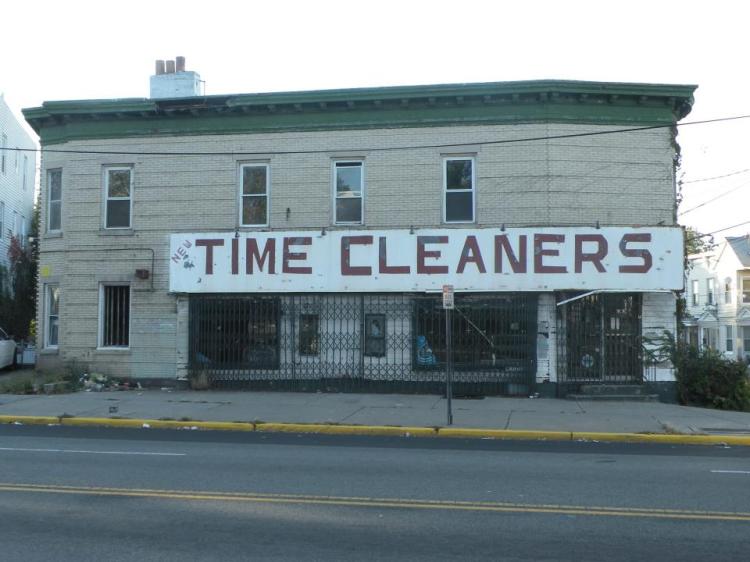This morning Jason Read of the University of Southern Maine posted the following photograph on his Facebook page (due to Tom McGlynn, to whom I owe thanks for letting me reproduce it here).
Jason added:
Just looking at it makes me want to write a bad science fiction novel about the unglamorous, dangerous, and low-paying job of time cleaners.
I look forward to Jason’s novel, which I doubt will be bad. In the meantime, I thought I would put down some very brief, necessarily loose, remarks that perhaps Jason can draw on as he gets to work on his magnum opus. (Incidentally, I should say I disagree the work of time cleaners will be ‘unglamorous, dangerous and low-paying.’ Au contraire, it will be extremely lucrative, high-end, boutique work. There will be some dangers involved, as ruptures of the space-time fabric tend to have mysterious side-effects, but that is precisely why time cleaner clients will pay top dollar rates. I suspect there will be a booming insurance industry associated with it; as usual, Lloyds will gain first mover status in this new market quite quickly.)
What would a time cleaner do? Well, if time is understood as an ordering of events, then perhaps a time cleaner would be in charge of cleaning up this ordering by removing events altogether, reordering events, and inserting new ones. The possibilities are interestingly different, each with peculiarly different consequences. The client could say something along the following lines, ‘Dear time cleaner, I wish to have my timeline cleaned up. Would you please delete event #214, place event #345 before event #234, not after, and can you insert a new event between #434 and #435 and renumber and reorder accordingly?’. The time cleaner would make the appropriate adjustments to the space-time fabric and then, if the technology is sophisticated enough, invite the client for a trial run before submitting the final version for use. It might be that event deletion, insertion and reordering is a destructive act, thus making trial runs impossible, and consequently rendering these procedures even more expensive. (The associated premiums for catastrophic errors would accordingly skyrocket.)
There is a problem with this picture, of course. My language suggests the client is enduring through external events distinct from the client. This doesn’t seem quite right, especially when you consider the client is enmeshed and implicated in those events. If a client is an extended space-time worm, the task of the time cleaner becomes more interesting: a kind of temporal cosmetic surgeon if you will, one responsible for artfully cleaning and concealing blemishes and imperfections in particular spatiotemporal co-ordinates. The client would check in at the time cleaning clinic, sign the appropriate disclaimers and then subject itself to the time cleaner’s scalpel.
There are some fascinating interactions that remain to be explored between the work of the time cleaner and that of the memory cleaner (the kind, for instance, shown to run rampant in Eternal Sunshine of the Spotless Mind). Having subjected one’s space-time worm to the time-cleaner would we be left with two memories? This might require calling in the services of the memory cleaners, or perhaps we could look forward to this as an enjoyable side-effect of the time cleaning. The possibilities are intriguing.
In any case, I welcome further speculative exploration of the time cleaner’s work.

It looks like the Ghostbusters store front. I see an opportunity for a comedy.
Tom,
Interestingly, Jason wrote a mock intro to this ‘novel’ yesterday and it read really well, like a dystopian mystery of sorts!
Armando Iannucci (of The Thick of It/In the Loop fame) wrote a piece on a very similar subject, which is hilarious: “A Switch in Time.” It’s available here: https://www.youtube.com/watch?v=ZsdC_vTKzXk